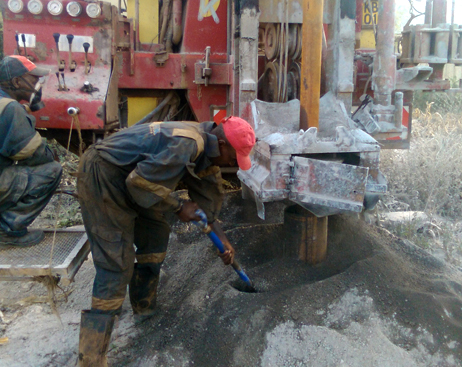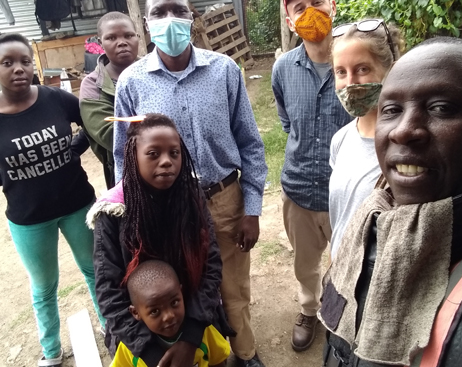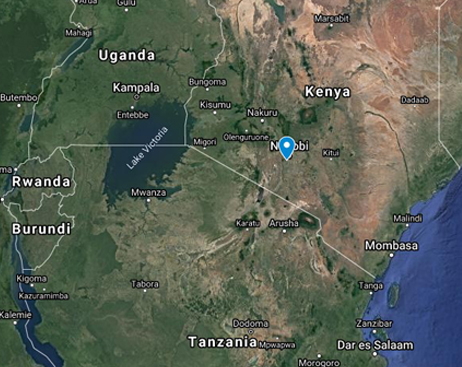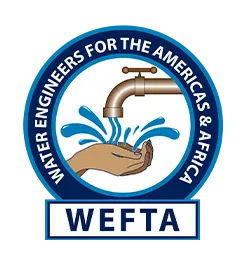
Olotepesi Water Project
$24,020 still needed to complete this project
Total Project Cost: $59,620
Project Location: Rangau, Kajiado County, Kenya – East Africa
Community Background
The community of Rangau consists of 500+ houses located in Kajiado County, part of the Rift Valley Province of Kenya. The community is rural with dispersed houses surrounded by gardens and fields. Due to the proximity (approx. 25km) to Nairobi, the capital of Kenya, the community is growing fast with a wide range of household income status. Many adults from Rangau travel to Nairobi for work and the children in the community attend public or private school, depending on the household ability to pay.
Water, Sanitation and Health (WASH) Concerns
A few water systems exist in the area. These systems are primarily groupings of houses sharing one well. Local churches, schools and clinics have their own wells. A household typically pays $270 to connect to a system in addition to $1.20 for each cubic meter of water used (265 gallons). If no connection is available, community members will purchase a ‘jerry can’ (5 gallons) of water for $.25 from other nearby systems. The wells in the area vary in water quality with some wells being high in fluoride.
Proposed Project
The proposed project will expand the existing multi-household system of 10 houses to the adjacent 200+ houses in the system service area. This will include expanding water storage capacity with an additional 2,500-gallon elevated tank, new buried distribution piping to the service area, and household taps.
This expansion will help provide reliable water service 24 hours a day eliminating the need for the household members (primarily women and children) to spend hours collecting or fetching water. This expansion will improve the quality of life, making it possible for these family members to spend more time with their families and increase school attendance.
The existing well is permitted by the Kenyan Water Resource Board and will produce good water for the service area. The water quality of the groundwater in the area is good except for high fluoride concentrations. To resolve this issue, primarily for water that is to be consumed, we will install two ‘Kiosks’ centrally located in the community.
The Kiosk model is a widely used method in Africa to ensure people have access to potable water without having to treat all of the water system water. The kiosks will have additional treatment (filtration) inside a brick building with service taps on the outside. Community members that are up to date on their water bill will be able to fill containers for use at home for human consumption. Currently community members must travel outside the community to purchase potable water. This model will make potable water more accessible inside the community.
Sustainability Considerations
Our in-country partners, Olotepesi Company Limited, along with the community members will monitor the project in the construction phase and evaluate the project annually to verify household use, payments, cash on hand of the water committee, and operation & maintenance performed on the system. Olotepesi Company Limited is a local Kenyan WASH NGO founded by Mr. Jastine Mironga, an engineer trained in Canada.
The O&M report will be shared with WEFTA annually to ensure involvement and any feedback necessary.
Community Engagement
The 210+ community households in the service area have each committed $136.30 to the project as a connection fee. These funds will be used for a portion of the project construction and for ongoing operation and maintenance of the system once complete.
WEFTA Volunteers
WEFTA will donate engineering and post-construction follow-up to this project equating to 10% of the total project cost.
If you would like additional information about this project, please contact us.
Donate to Olotepesi Water Project



In Kenya, more than 40%
of the population does not have access to safe water.
This project will provide reliable clean water for over 200 families!
Our commitment is to the long-term success of the projects we’re involved with and it doesn’t stop when construction is complete.
